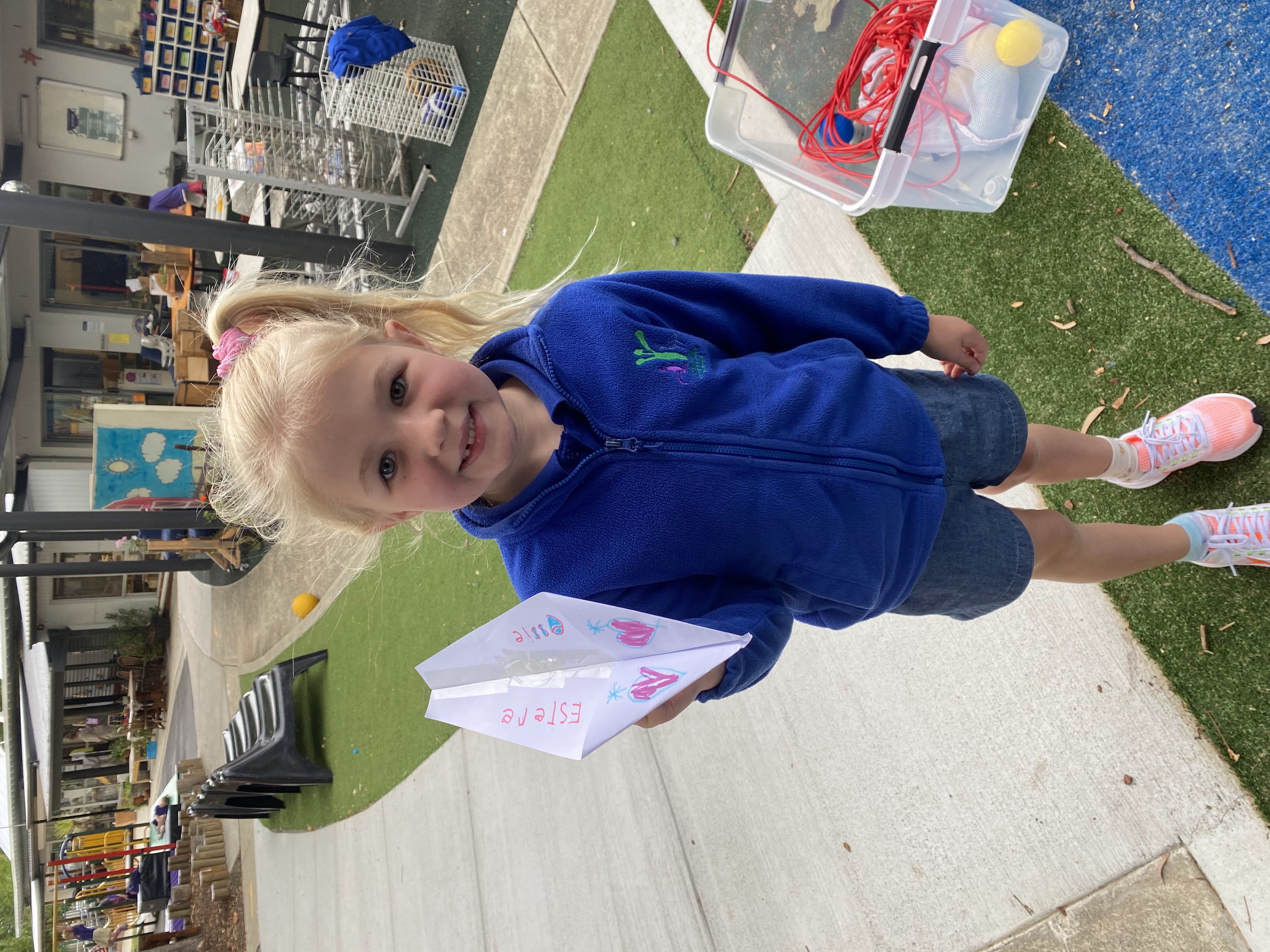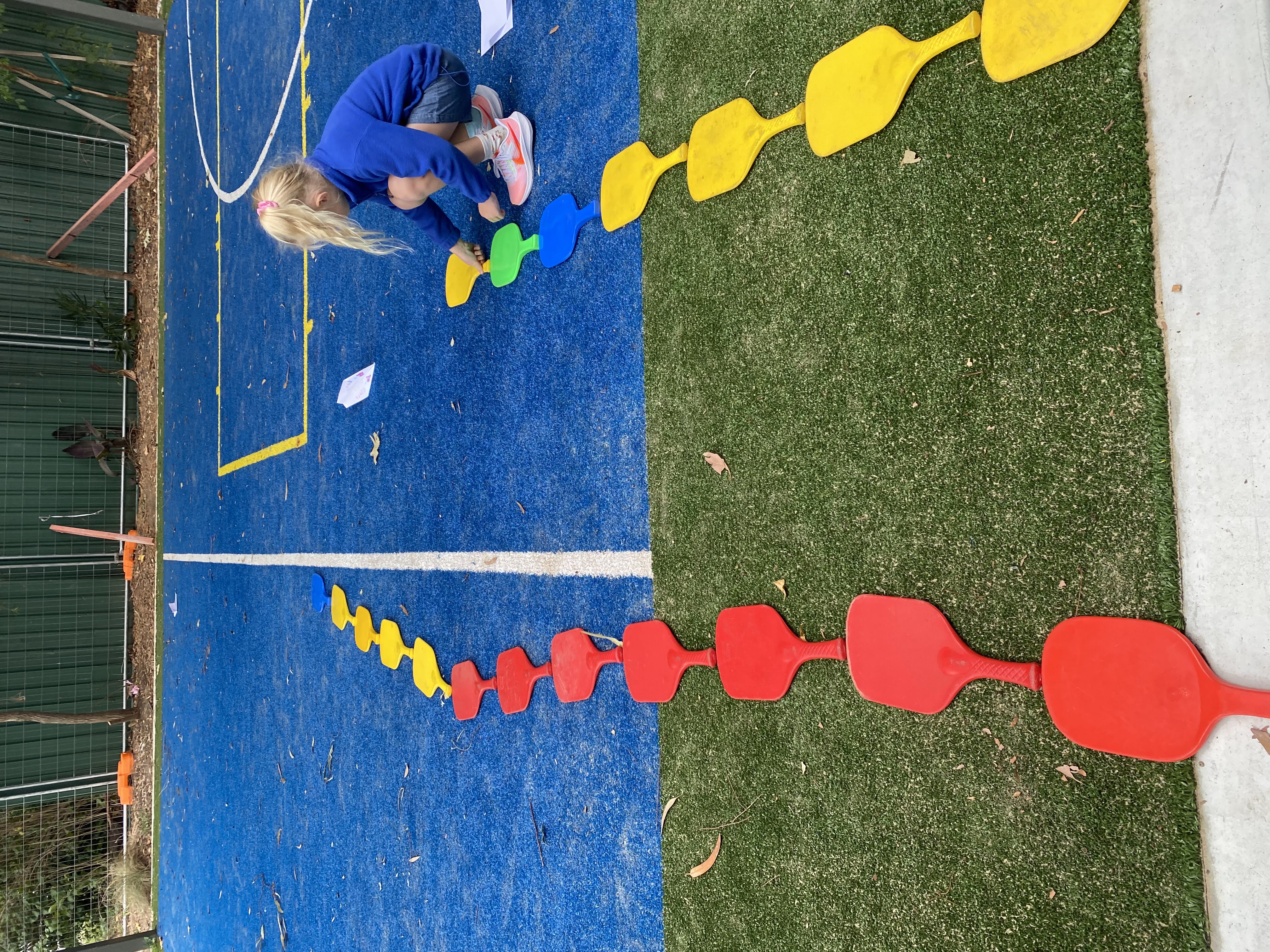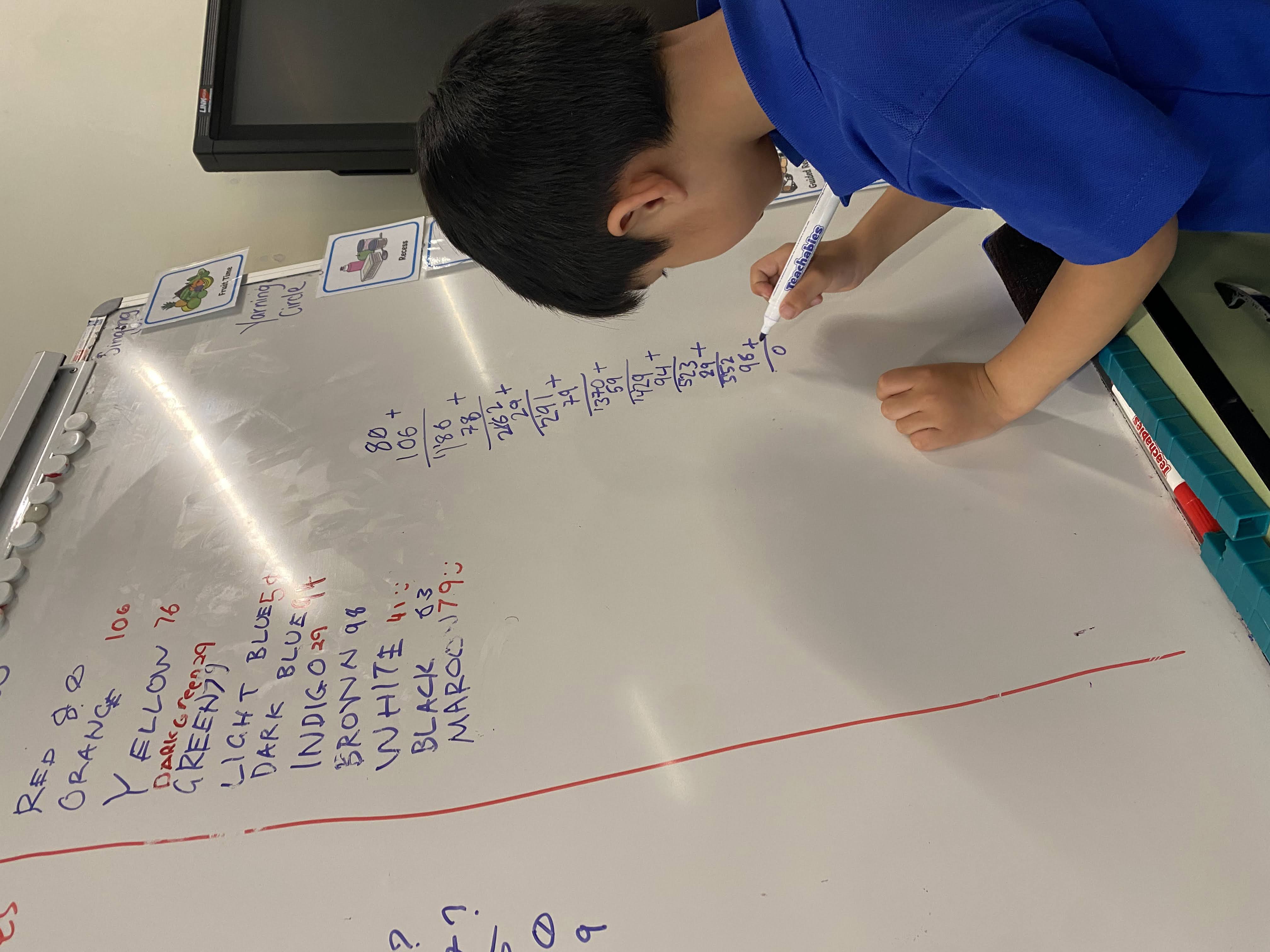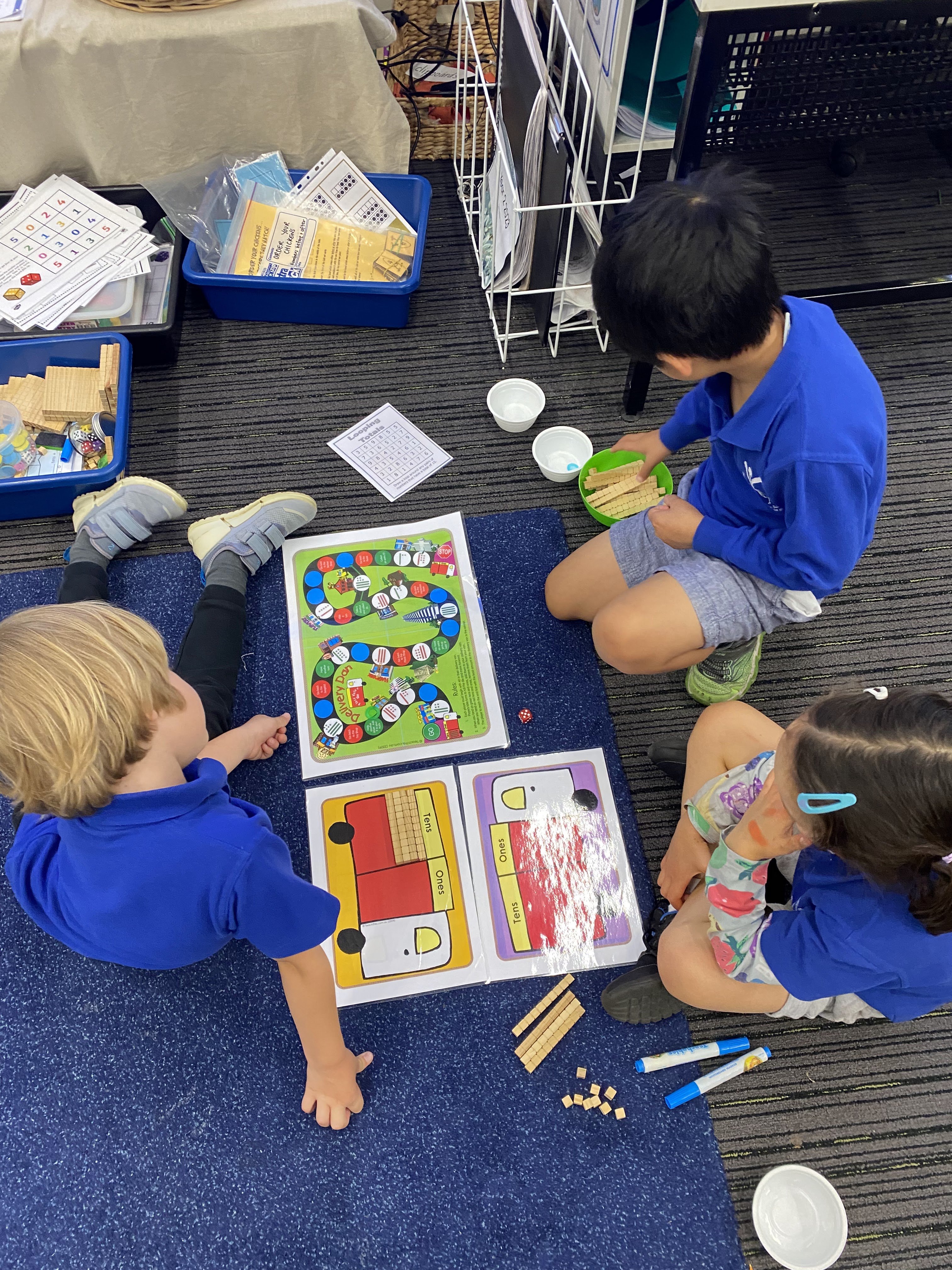Numeracy
Our Numeracy Beliefs and Practices
We believe that effective teaching and learning of numeracy is:
- Fun and hands on learning experiences
- Related to real world problems and learning
- Explicit teaching of prerequisite skills to avoid misconceptions, following the Australian Curriculum Learning
- Progressions as part of ACARA
- The teaching of mathematical vocabulary and consistent use of mathematical language
- A planned balanced numeracy session (incorporating a warm up, explicit focus, differentiated exploratory activities and time for cognitive closure)
- Open ended and inquiry based learning experiences
- Using timely and appropriate assessments and resources that are targeted to identify and address specific student needs
- Catering for all learning styles
- Using a range of quality and purposeful assessment tasks (e.g. BASE, SENA, PAT Maths)
In our school you will see:
- Students having an opportunity to practise mathematics skills
 and apply them
and apply them - The explicit teaching of a variety of strategies to solve a problem
- Students explaining their thinking and how they reached their strategies and answers
- Students engaging in collaborative learning with each other
- The explicit teaching and reflection of problem solving and meta cognitive skills
- Whole class, small group and individual open-ended and inquiry learning tasks
- The use of both mixed ability groups and ability groups
- The use of quality open ended maths games
- The use of resources that are targeted to specific student needs
- Explanations and visible displays of mathematical language
- Mathematical word walls using purposeful and relevant language
- Posters and displays used for children’s learning
- Consistent use of mathematical language between both teachers and students
- Self-directed opportunities to perform mathematical tasks
- Teachers engaged in collaborative data discussions as part of our PLTs
- The use of diagnostic, formative and summative assessments
- A whole school approach and purposeful assessment schedule
So that …
- Children become confident and critical thinkers, communicators, and mathematicians.
- Children develop dispositions for learning such as curiosity, confidence, persistence, problem solving, inquiry, hypothesising and experimentation.
- Children can transfer their knowledge from one concept and context to another.


